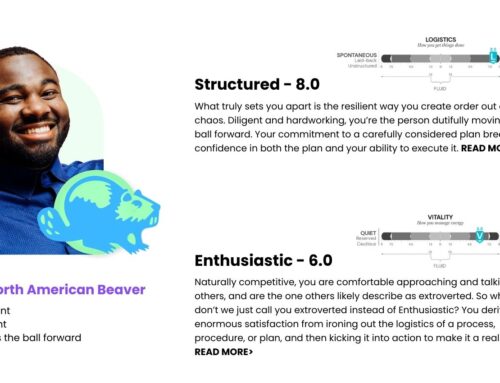The Troubling Rise of Precarious Manhood
Men who struggle with their sense of masculinity were far more likely to vote for Donald Trump in 2016 and to support congressional Republicans who language similar to Trump’s in 2018, say researchers who collected and correlated geographical voting and Google search data stretching back to the 2012 presidential campaign.
Their research suggests that Trump was especially adept at drawing support from men struggling with a phenomenon known as precarious manhood, since the same data was not found during the Republican campaigns of either John McCain (2008) or Mitt Romney (2012).
And lest anyone believe this is a partisan issue, it’s not. Precarious manhood can just as easily be found in men who vote Democratic, Independent, or not at all. It is a mental affliction, not a partisan one.
In other words, if Biden or Sanders had used comparable language during their campaigns, the same men with precarious manhood would have supported those candidates.
It just so happens that Trump used the kind of overtly masculine language that appeals to the precarious manhood demographic.
What is Precarious Manhood?
In contrast to womanhood, which enjoys a kind of hardcoded acceptance thanks to a woman’s inherent reproductive capabilities, males from an early age are conditioned to constantly reaffirm their masculinity. Often this takes the form of aggressive, competitive, bellicose behaviors.
But for any number of reasons, some men come of age feeling anxious and insecure about their masculinity. This sense of precarious manhood – also known as fragile masculinity – can lead to men acting out in stereotypically masculine behavior.
One such behavior is voting for tough-talking candidates like Trump. For example, a study on masculine overcompensation by Robb Willer, professor of sociology, psychology and organizational behavior at Stanford University, showed that men with precarious manhood will support tougher stances on crime and foreign policy.
Letting the Data Talk
In research led by NYU social psychologist Eric Knowles, geographical voting data was collected along with Google search terms known to be associated with precarious manhood characteristics (e.g., erectile dysfunction, how to get girls, penis size, steroids, testosterone, Viagra, etc.).
What they found was that in regions where these terms were heavily searched on Google support for Trump was especially strong. And these trends were consistent even when accounting for other demographic attributes, including media markets, racial composition, education, age, and so on.
Yet when similar data could not be found for the McCain and Romney campaigns, suggesting that precarious manhood has become a stronger predictor of male voting behavior.
How to combat or at least better understand precarious manhood? By developing a stronger sense of self-awareness. Only in understanding oneself can such behaviors be unearthed and tackled.
The Troubling Rise of Precarious Manhood
Men who struggle with their sense of masculinity were far more likely to vote for Donald Trump in 2016 and to support congressional Republicans who language similar to Trump’s in 2018, say researchers who collected and correlated geographical voting and Google search data stretching back to the 2012 presidential campaign.
Their research suggests that Trump was especially adept at drawing support from men struggling with a phenomenon known as precarious manhood, since the same data was not found during the Republican campaigns of either John McCain (2008) or Mitt Romney (2012).
And lest anyone believe this is a partisan issue, it’s not. Precarious manhood can just as easily be found in men who vote Democratic, Independent, or not at all. It is a mental affliction, not a partisan one.
In other words, if Biden or Sanders had used comparable language during their campaigns, the same men with precarious manhood would have supported those candidates.
It just so happens that Trump used the kind of overtly masculine language that appeals to the precarious manhood demographic.
What is Precarious Manhood?
In contrast to womanhood, which enjoys a kind of hardcoded acceptance thanks to a woman’s inherent reproductive capabilities, males from an early age are conditioned to constantly reaffirm their masculinity. Often this takes the form of aggressive, competitive, bellicose behaviors.
But for any number of reasons, some men come of age feeling anxious and insecure about their masculinity. This sense of precarious manhood – also known as fragile masculinity – can lead to men acting out in stereotypically masculine behavior.
One such behavior is voting for tough-talking candidates like Trump. For example, a study on masculine overcompensation by Robb Willer, professor of sociology, psychology and organizational behavior at Stanford University, showed that men with precarious manhood will support tougher stances on crime and foreign policy.
Letting the Data Talk
In research led by NYU social psychologist Eric Knowles, geographical voting data was collected along with Google search terms known to be associated with precarious manhood characteristics (e.g., erectile dysfunction, how to get girls, penis size, steroids, testosterone, Viagra, etc.).
What they found was that in regions where these terms were heavily searched on Google support for Trump was especially strong. And these trends were consistent even when accounting for other demographic attributes, including media markets, racial composition, education, age, and so on.
Yet when similar data could not be found for the McCain and Romney campaigns, suggesting that precarious manhood has become a stronger predictor of male voting behavior.
How to combat or at least better understand precarious manhood? By developing a stronger sense of self-awareness. Only in understanding oneself can such behaviors be unearthed and tackled.



